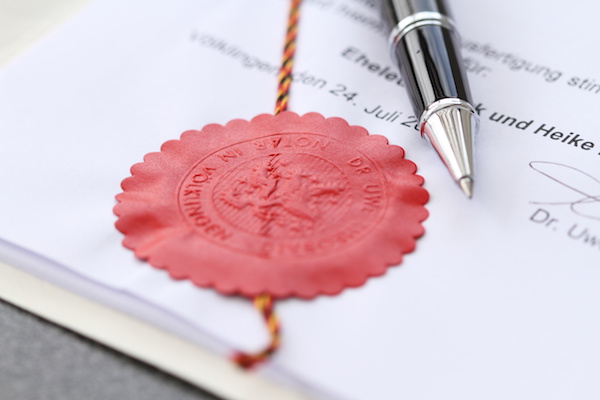Even if you’re meticulous about financial planning, you may be putting off writing a will until the later years of your life. However, your family members may find themselves entangled in a legal morass without warning if you or your spouse pass away unexpectedly. There are some potentially negative complications for sorting out your estate if you haven’t already committed your wishes in a legally binding document.
Dying Without a Will in Place
Intestacy is the condition of an estate that is not governed by a will or other legal document. A person who dies intestate may have died unexpectedly or merely neglected to make a will before passing. It is possible to write a will that only covers part of your assets. Those parts of your estate not addressed in the will may be intestate despite the existence of a will.
Intestacy Leaves Matters to the Court
If you die intestate, the decision of how your estate is distributed falls to the courts. In Florida, as in most states, probate court will handle these matters. Probate courts only address assets that were solely or jointly owned by the person who dies, and those assets were not addressed in a will or other document. It also addresses assets that don’t have an automatic succession of ownership at death (for example, a bank account where you have named your spouse as the person who would access that account when you die).
Florida law specifies who will be the beneficiary of your estate. It also specifies the order of priority. The law discusses whether your spouse or any descendants (“heirs”) will be the beneficiaries of your estate. “Descendants” refers not only to your children but anyone directly descended from you (like grandchildren).
Who Gets What if You Die Without a Will
Your spouse will be the primary beneficiary of your estate should you die without a will. This is true even if you have children with that spouse who survive you or any other direct descendants that you share with your spouse.
If you have a spouse with whom you share children, but you have descendants from another marriage or relationship, your spouse will receive half of the estate. Your spouse will share it with your other descendants not related by blood to your spouse, who will receive the other half. Those descendants will divide their share among themselves.
If you are not married but have children or other descendants, your children will be the beneficiary of the estate. If you have more than one descendant surviving you, the law dictates the order of the distribution of benefits based on the generation. Your children will get the estate and it will be divided among them if you have more than one.
If you die without leaving a spouse or descendants, your parents will be the beneficiaries of your estate. If they have passed, your siblings will get the estate. If there are no siblings, then the court will try to find other relatives who are in the line of succession.
In some cases, the distribution of assets without a will can become complicated. Your heirs may need to hire an attorney to help sort these out.
Appointing an Executor When No Will Exists
Often, a will designates an executor, a person who is responsible for sorting out various issues that arise from probate matters. If you die without a will, the court will have to appoint a person to handle these issues. That person is called a personal representative.
If you die intestate, your spouse, if you have one, will have the primary right to be appointed as the personal representative by the court. The spouse may also refuse the right, and the spouse or a collective of heirs may elect a personal representative.
Hire an Experienced Florida Probate Attorney to Help
Given the complications of issues involved in probate, the personal representative should choose to have an experienced probate attorney represent them. This attorney will help the personal representative make sound decisions regarding estate issues and if necessary represent the personal representative in court. The attorney will not act as the lawyer for any specific heir but will represent the interests of the estate.
At the France Law Firm, our attorneys combine a knowledge of estate law with compassion for our clients in the most difficult circumstances. We can provide clarity on complexities and give you confidence that your problems will be handled efficiently and to your satisfaction. Whether you are considering creating a will or you need to untangle issues when a spouse has died without a will, call us to find out how we can help.






















